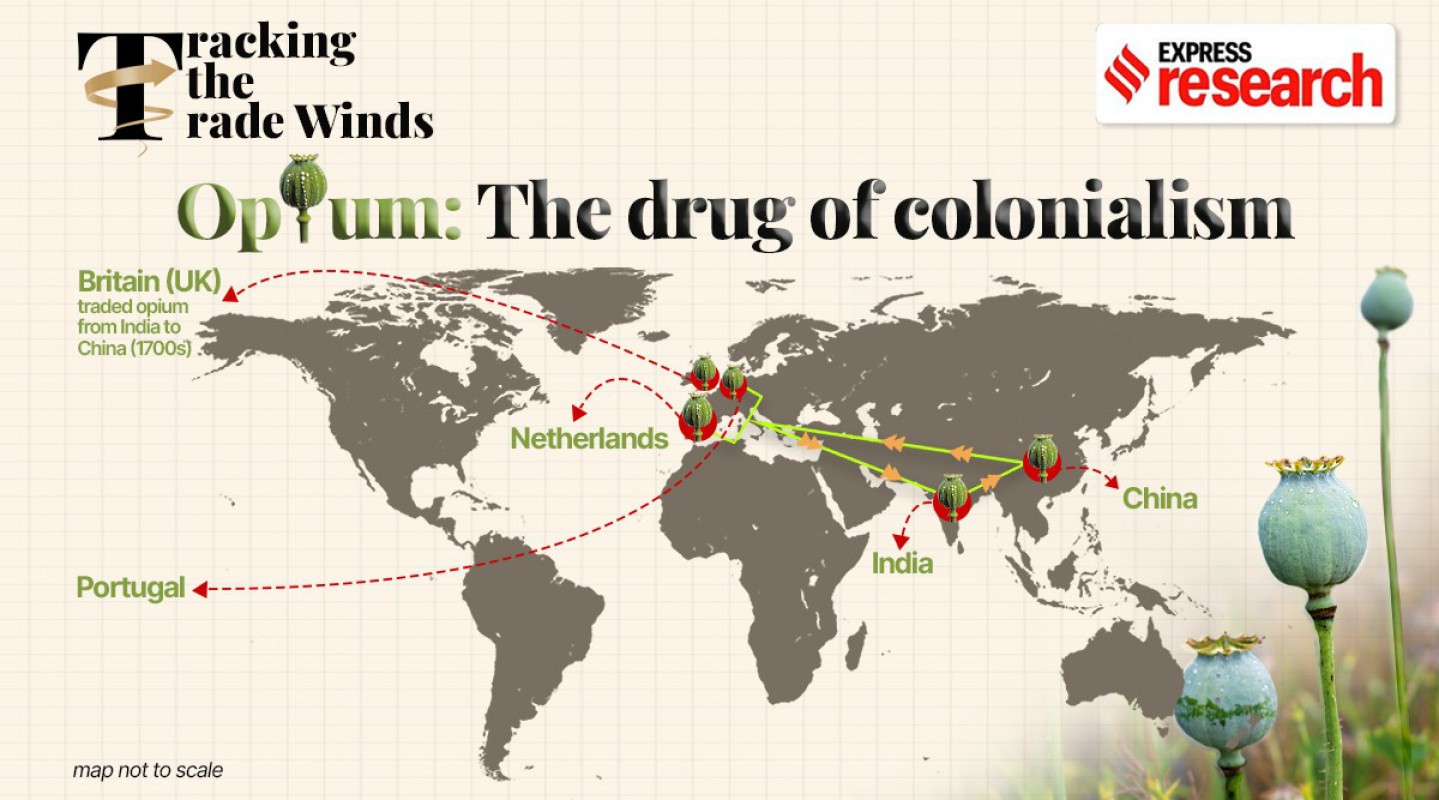Colonialism, CIA, and Kuomintang primarily seeded opium in Myanmar's land

808

Tun Mon Thet (NP News) – Feb 29
In recent months, the United Nations Office on Drugs and Crime (UNODC) reported that Myanmar has seen a significant rise in poppy farming and becomes the world’s largest centre of opium production in 2023. Instead, poppy cultivation in Afghanistan declines.
The report states a precise percentage of upward trending of poppy cultivation in Myanmar noting that it was an 18% increase with a total of 47,100 hectares under cultivation. Some reports also pointed the finger that the upward trend of poppy cultivation followed the military takeover in 2021.
The UNODC highlighted the majority of opium cultivation areas as border regions in the northern Shan State which Myanmar shares territory with China, Laos and Thailand.
Colonialism-born opium popularity in Southeast Asian land
When I read this report, I recalled some histories and plots when poppy cultivation was intentionally imported by aliens to Myanmar in the bygone era.
Dating back to the 19th Century, it was the colonialists: Portuguese, the British and the French who carried the narcotic trades from the Middle East, via India, to the Southeast Asian countries – Thailand, Myanmar, Laos, Cambodia, and Vietnam. The narcotic drug market was once very competitive in the lands of Southeast Asian countries in those days among the colonialists. They granted licenses and permits to sell heroin-complex drugs only for their economic interests. By this mean, heroin and opium were expanded in the Southeast Asian land. For Myanmar, the opium and related dark businesses were inherited by the British colonists.
That was the very pioneer time in the ancient history of arriving poppy to Myanmar as played by the British.
Opium booming in Southeast Asian land directly links with the U.S. plot in the Cold War
“Taiwanese ancestors Kuomintang planted poppies in Myanmar’s Shan State to equip themselves.”
When the time flew to the 1950s, after the country gained fresh independence, thousands of KMT troops invaded Myanmar as they were defeated and chased by Mao Zedong’s troops. The KMT, backed by the American Central Intelligence Agency (CIA), plotted an attempt to re-take China by taking a foothold in Myanmar’s territory. The KMT settled in northern Shan State. They generated money to finance equipping armed themselves by cultivating opium in the Shan hills to produce large supplies of opium throughout the Southeast Asian land.
It is crystal clear that the KMT’s efforts of cultivating opium in the Shan hills and their involvement in the drug trade resulted in the major factor in Golden Triangle’s booming narcotics trade in the 1950s. The KMT army of Li Mi was indeed armed, fed and paid by the CIA; on the other hand, the KMT’s capacity of building up opium operations in Myanmar’s northern land became pivotal in the Golden Triangle opium trade.
Aiming to prevent the Communist ideology from spreading to Myanmar and from there, to other Southeast Asian mainland, the CIA not only offered a variety of support to the KMT troops in the 1950s but also played its dirty hands in the Vietnam War with the drugs in 1970s.
The CIA-owned airline ‘Air America’ later notoriously played the major role in transporting supplies of drugs and forces into Vietnam. The CIA-triggered opium operations through the Vietnam War were also involved by Generals from Laos and the U.S., experts claimed.
However, a tragic true story behind the CIA’s drug operation in the Vietnam War was the victims themselves – the American soldiers from the Vietnam front line. Thousands of American soldiers in the Vietnam land were addicted to and surrendered before the heroin.
Despite the CIA’s plots for the heroin network among the Southeast Asian land, Lo Hsing-han who was born in Myanmar’s Shan State was only zoomed in this drug track along the Golden Triangle to Vietnam.
Drug issues in Myanmar, with many complicated factors, are mainly triggered by the so-called ethnic armed troops. A couple of weeks ago, a record-breaking seizure of illegal drugs that was valued at more than 50 billion Kyat was seized from a drug gang, individuals of it linked to the Rakhine insurgents known as ‘Arakan Army’.
The Anti-narcotic Task Force of the Myanmar Police Force announced the news of capturing drugs on 18 December.
Upon early investigation, more than two thousand kilograms of ICE (methamphetamine) were reportedly seized in Yangon.
Police investigations revealed that the seized 2.07 tons of ICE were intended to be transported from Shan State to Yangon via the marine route, with subsequent plans for transportation to foreign countries. The individuals in this drug gang were the Colonels, sergeants and different ranks serving in the Rakhine insurgent AA.
Last but not least, many rebels and insurgents, and finally even PDF terrorists are backed by the U.S. in order to scout Myanmar’s two big neighbours – China and India.